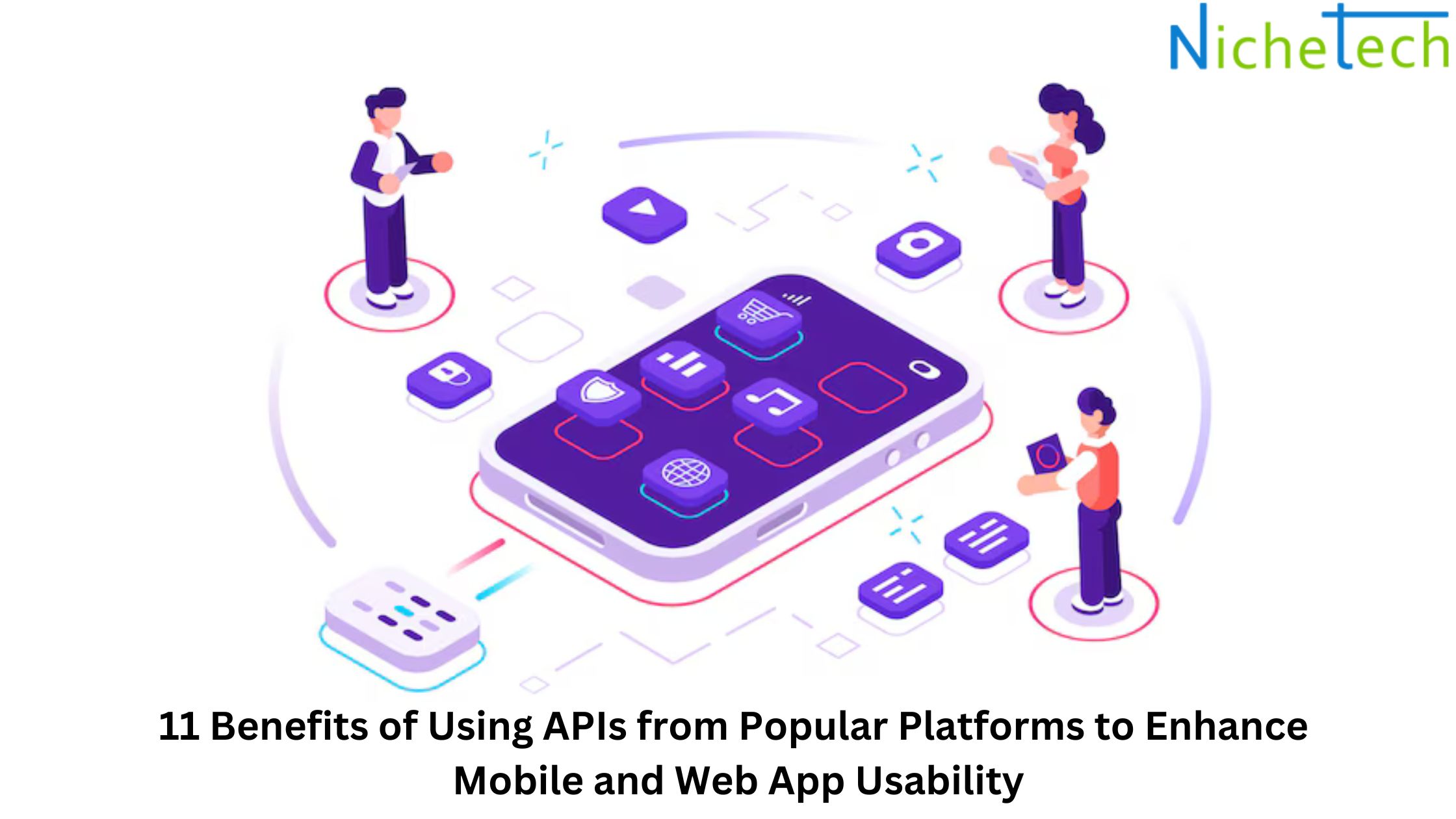As digital landscapes become increasingly interconnected, mobile and web apps need to offer more than just standalone functionality to remain competitive. Integrating APIs (Application Programming Interfaces) from popular platforms like Google, Facebook, Stripe, and others can elevate the usability and functionality of your app, creating a seamless, feature-rich experience for users. Here are 11 key benefits of using APIs from popular platforms to enhance the usability of your mobile and web apps.
1. Expanded Functionality without Extensive Development
APIs provide access to robust features without requiring you to build them from scratch. For example, integrating Google Maps allows you to add interactive maps, route planning, and location-based services directly into your app, enhancing functionality without investing heavily in development.
By leveraging these pre-built solutions, developers can save time and effort, enabling them to focus on unique, value-added features that differentiate their app.
2. Improved User Experience with Familiar Interfaces
APIs from popular platforms often bring familiar interfaces and functions that users already know, reducing the learning curve. For example, integrating Google’s voice assistant or enabling Facebook login can create an intuitive experience, as users are accustomed to these interfaces.
Providing users with familiar experiences can increase comfort and engagement, leading to a more positive perception of your app’s usability.
3. Seamless Authentication and Login Options
Logging in is a crucial part of most apps, but creating a secure and user-friendly login system from scratch can be complex. APIs from platforms like Google, Facebook, and Apple allow users to sign in using existing accounts, reducing friction and improving security.
This API integration makes registration faster and easier for users, reducing abandonment rates during onboarding and enhancing the overall experience.
4. Enhanced Data Collection and Analytics
Integrating analytics APIs, such as Google Analytics or Mixpanel, can provide deep insights into user behavior and preferences. These analytics tools offer detailed data on user interactions, session durations, and navigation paths, enabling data-driven decisions.
With access to accurate metrics, developers can improve app performance and optimize the user journey based on real-time feedback, leading to a more satisfying user experience.
5. Increased Engagement through Social Media Integration
APIs from platforms like Instagram, Twitter, and LinkedIn allow users to share content directly from your app to their social networks. Social sharing not only increases user engagement but also promotes your app organically, attracting new users through word-of-mouth.
Adding social media functionalities keeps users engaged by enabling them to interact with their networks without leaving your app, contributing to longer session times and higher retention.
6. Real-Time Updates and Notifications
APIs from messaging platforms or notification services, like Twilio or Firebase, allow for real-time notifications and alerts, which are crucial for keeping users informed and engaged. For example, e-commerce apps can use real-time notifications to alert users about order updates, while gaming apps can notify users of upcoming events.
These real-time interactions contribute to a dynamic experience, keeping users engaged and improving the perceived value of the app.
7. Enhanced Payment and Checkout Experiences
Integrating payment APIs, like Stripe, PayPal, or Square, simplifies the checkout process for users by offering a variety of payment options. These platforms provide secure, compliant solutions for handling transactions, which enhances trust and streamlines the checkout experience.
The convenience and security offered by established payment APIs reduce cart abandonment rates and make users more likely to complete purchases, boosting overall revenue.
8. Improved Localization and Personalization
APIs such as Google’s Translation API or localization services like Localize enable you to offer your app in multiple languages, accommodating users from different geographical areas. This localization, combined with personalization tools that recommend content based on user preferences, enhances usability and makes users feel valued.
Personalization makes users more likely to return, as they feel the app understands and caters to their individual needs, leading to higher engagement and retention.
9. Enhanced Security and Data Protection
Popular APIs often come with built-in security features that meet the latest compliance standards, such as OAuth 2.0 for authentication or GDPR compliance for data privacy. By leveraging these APIs, your app can offer secure user data handling, building trust with users.
Established platforms invest heavily in security, and integrating their APIs can save your development team from having to implement and maintain complex security protocols independently.
10. Streamlined In-App Communication
In-app messaging and chat functionalities have become standard for many apps, from customer support to user-to-user communication. APIs from services like Twilio or SendGird API provide reliable, real-time chat features without the complexity of building them from scratch.
By integrating these APIs, you enable users to interact within the app, which improves usability by centralizing interactions and providing seamless communication options.
11. Future-Proofing Through Continuous Updates and Support
APIs from popular platforms are continuously updated to meet current standards, support new features, and maintain compatibility with evolving technologies. By leveraging these APIs, you’re ensuring that your app benefits from the latest innovations and improvements without needing to update or rebuild certain functionalities.
Popular platforms also provide extensive documentation and support for their APIs, ensuring that developers can easily troubleshoot and resolve issues, maintaining a high standard of usability for your app.
APIs from popular platforms offer a wealth of functionality that can significantly enhance the usability, security, and overall user experience of mobile and web apps. From familiar login options to real-time updates, social sharing, and secure payment processing, APIs allow you to focus on core competencies while leveraging established platforms for added value. As businesses look to create more engaging, efficient, and user-friendly apps, integrating APIs from trusted platforms can be a powerful strategy to stay competitive and deliver an exceptional user experience.







